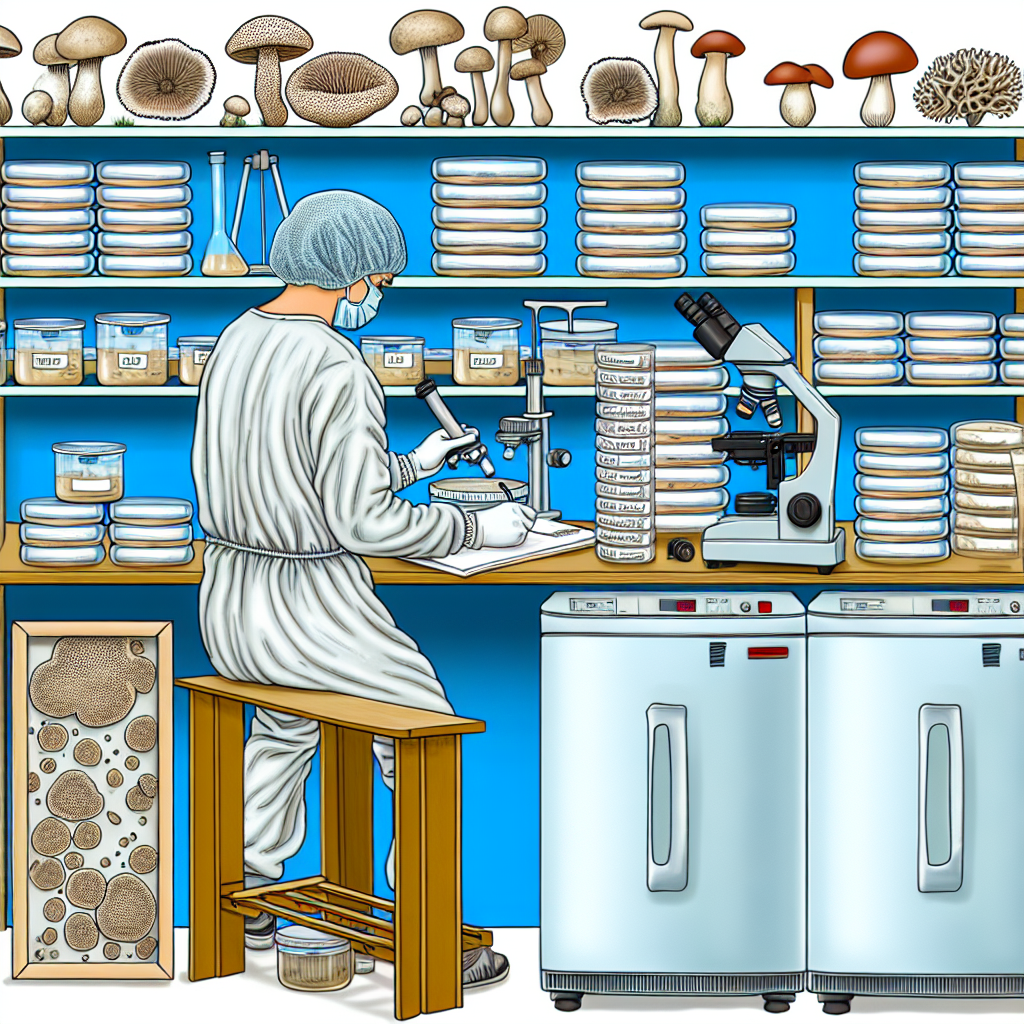Chaga Mushroom Tea: Anti-Inflammatory Properties and Brewing Techniques
Introduction: A Centuries-Old Remedy Gaining Modern Momentum
In the rapidly evolving landscape of holistic health and natural remedies, Chaga mushroom tea is capturing well-deserved attention for its potential medicinal benefits—particularly its impressive anti-inflammatory properties. Chaga (Inonotus obliquus), a parasitic fungus that grows primarily on birch trees in cold climates such as Siberia, Northern Europe, Canada, and parts of the Northern U.S., has been used for centuries in traditional medicine. From East Asian healing practices to Russian folk medicine, Chaga has enjoyed a glowing reputation for promoting longevity, strength, and overall well-being.
At first glance, Chaga may not appear particularly appetizing—its dark, crusty exterior looks more like burnt charcoal than a health tonic. However, its interior is loaded with polysaccharides, polyphenols, betulinic acid, and melanin, giving it potent antioxidant and potential therapeutic effects. Among its many proposed health uses, Chaga tea is gaining widespread interest for its ability to reduce inflammation, a biological response linked to a host of chronic diseases including arthritis, cardiovascular problems, and autoimmune disorders.
Inflammation, while essential in acute responses to infection or injury, becomes dangerous when it turns chronic. Dietary and lifestyle interventions that address persistent inflammation can greatly improve health outcomes and quality of life. Chaga tea, with its unique blend of bioactive compounds, may offer a gentle and natural assist in taming an overactive immune system.
Modern research is beginning to validate these traditional uses. Preliminary studies point to Chaga’s capacity to inhibit inflammatory pathways and curb oxidative stress, reducing cellular damage and modulating immune responses. This dual-action makes Chaga an attractive option for those seeking integrative approaches to inflammation-related health issues.
Beyond its health potential, the act of brewing Chaga tea itself provides a transformative daily ritual. The reassuring aroma, earthy flavor profile, and warming essence offer more than just nutritional benefits—they provide mental grounding and a connection to nature that pharmaceutical interventions often lack. In this article, we’ll explore the science behind Chaga’s anti-inflammatory benefits, delve into effective brewing techniques, and explain how this ancient fungus might be a valuable addition to modern wellness routines.
The Science Behind Chaga’s Anti-Inflammatory Power
Recent years have brought a surge of interest from the scientific community into the bioactive compounds found in Chaga mushrooms, particularly their role in modulating inflammatory responses. While more human clinical trials are needed, existing laboratory and animal studies offer insight into the mushroom’s potential.
One of the key anti-inflammatory mechanisms of Chaga is its ability to inhibit pro-inflammatory cytokines. A 2014 study published in the journal Bioorganic & Medicinal Chemistry Letters found that triterpenoids isolated from Chaga exhibited strong inhibition of nitric oxide (NO) production in activated macrophages, indicating its potential anti-inflammatory and immunomodulatory capabilities. [Study link](https://www.sciencedirect.com/science/article/abs/pii/S0960894X14005929)
Chaga is also rich in polysaccharides, particularly beta-glucans, which have been associated with immune system regulation. According to a review published in the International Journal of Medicinal Mushrooms, beta-glucans in Chaga can enhance the body’s ability to counteract infections and resist the damaging effects of stress and inflammation. [Study link](https://www.begellhouse.com/journals/708ae68d64b17c52,394a0191d34ecfc7,3bcdaacd292149ef.html)
Moreover, antioxidant activity plays a critical role in the battle against chronic inflammation. Oxidative stress is one of the root contributors to inflammation-related diseases. Chaga is particularly rich in superoxide dismutase (SOD), a powerful antioxidant enzyme that neutralizes harmful free radicals. A 2005 study by Nakatani et al. published in Phytotherapy Research demonstrated strong antioxidant activity in Chaga extracts, supporting its traditional uses in reducing systemic inflammation. [Study link](https://onlinelibrary.wiley.com/doi/abs/10.1002/ptr.1630)
Preclinical findings also suggest a potential role in gastrointestinal inflammation. For example, a 2020 study from Nutrients examined the protective effects of Chaga on chemically induced colitis in mice and found that Chaga extract reduced inflammation and preserved mucosal integrity. [Study link](https://www.mdpi.com/2072-6643/12/7/2195)
Although robust human trials are still limited, the current research paints a promising picture of Chaga mushroom tea as a potent natural tool to help mitigate chronic inflammation. For those facing conditions influenced by inflammation—from joint pain and skin disorders to cardiovascular and gastrointestinal ailments—Chaga tea may serve as a complementary and low-risk approach alongside medical guidance.
Mastering the Art of Brewing Chaga Tea
To harness the full therapeutic and nutritional value of Chaga, proper brewing techniques are essential. The goal is to extract the maximum concentration of bioactive compounds without degrading their integrity.
Chaga can be purchased in various forms: chunks, powder, or extract. For brewing tea, chunks or ground powder are preferred.
Brewing with Chaga Chunks:
– Break into 1-inch pieces if not pre-chopped.
– Use about 10 grams (2–3 small chunks) per quart of water.
– Simmer gently (do not boil) for 45 minutes to 1 hour.
– Strain the tea and serve hot or store in the refrigerator for up to a week.
– You can reuse the same Chaga chunks 3–5 times or until the tea becomes noticeably lighter in color.
Brewing with Chaga Powder:
– Use 1–2 teaspoons per cup of water.
– Boil water, then reduce to a simmer with the powder added.
– Simmer for 20–30 minutes, then strain.
– Powder offers a stronger and quicker infusion but may be more difficult to strain fully.
💡 Pro Tip: For even better absorption of fat-soluble triterpenes, consider adding a small amount of fat (e.g., coconut oil or oat milk) to the finished tea. Chaga’s earthy, slightly bitter taste is often balanced with cinnamon, raw honey, or lemon.
⚠️ Note: Avoid boiling Chaga at high temperatures for extended periods, as extreme heat can degrade some beneficial compounds, especially the delicate polysaccharides.
Conclusion: A Resilient Fungi for Modern Wellness
Chaga mushroom tea exemplifies the delicate balance between ancient wisdom and modern science. Its potent anti-inflammatory and antioxidant properties offer a compelling case for daily use as a functional beverage. With refined brewing techniques that preserve its bioactive potential, Chaga can provide more than a health boost—it can also serve as a ritual that reconnects us with nature’s pharmacy. As further research unfolds, Chaga may continue to redefine our understanding of natural healing and immunity support.
Summary
Chaga mushroom tea is gaining attention for its potential anti-inflammatory properties, supported by research on its bioactive compounds like polysaccharides, triterpenoids, and antioxidants. Proper brewing techniques, such as simmering rather than boiling, can help extract the maximum benefits from this ancient fungus. Integrating Chaga tea into a wellness routine may offer a natural approach to managing inflammation-related conditions alongside medical guidance.
References
– [Study on Chaga’s anti-inflammatory triterpenoids](https://www.sciencedirect.com/science/article/abs/pii/S0960894X14005929)
– [Review on Chaga’s immune-regulating beta-glucans](https://www.begellhouse.com/journals/708ae68d64b17c52,394a0191d34ecfc7,3bcdaacd292149ef.html)
– [Study on Chaga’s antioxidant activity](https://onlinelibrary.wiley.com/doi/abs/10.1002/ptr.1630)
– [Study on Chaga’s protective effects on gastrointestinal inflammation](https://www.mdpi.com/2072-6643/12/7/2195)

Dominic E. is a passionate filmmaker navigating the exciting intersection of art and science. By day, he delves into the complexities of the human body as a full-time medical writer, meticulously translating intricate medical concepts into accessible and engaging narratives. By night, he explores the boundless realm of cinematic storytelling, crafting narratives that evoke emotion and challenge perspectives. Film Student and Full-time Medical Writer for ContentVendor.com




